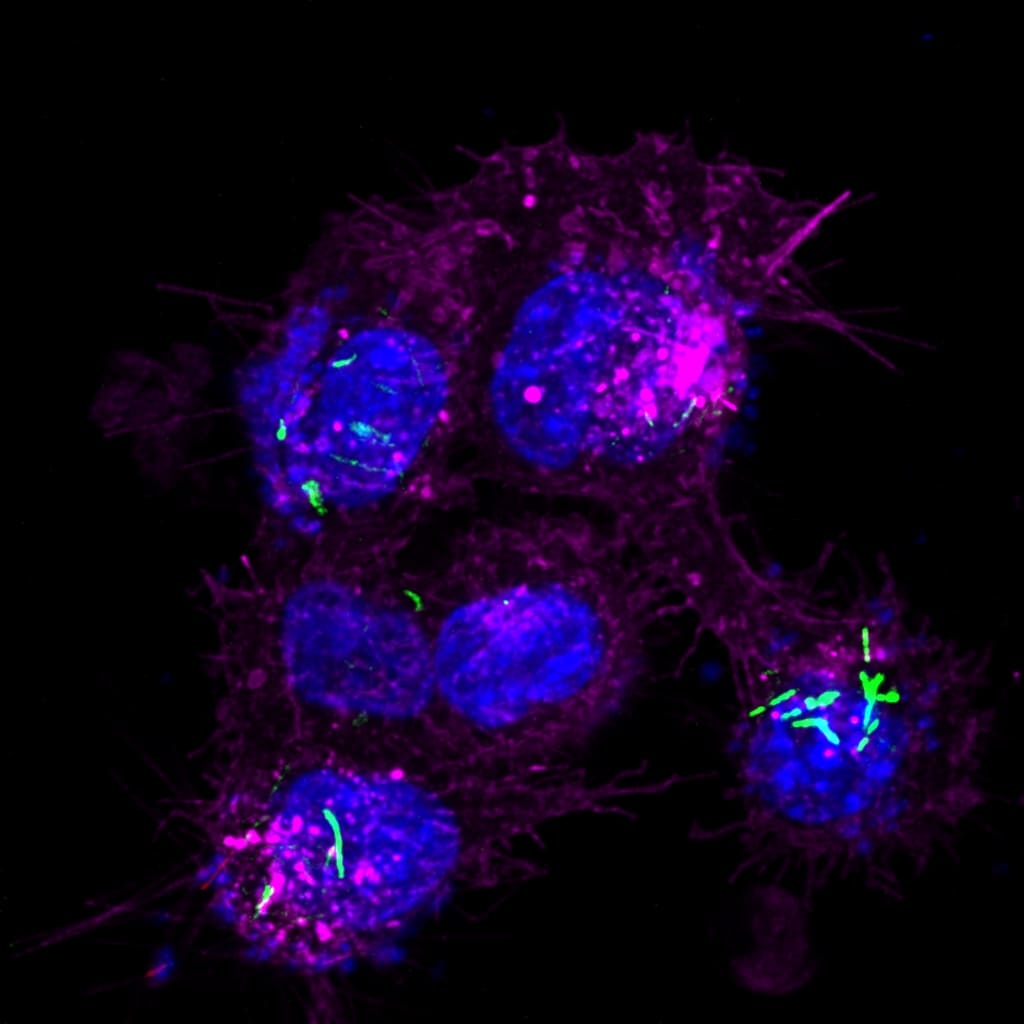IADR Abstract Archives
"Analysis of the protumoral mechanisms of the periodontal bacterium Fusobacterium nucleatum on growth, epithelial-mesenchymal transition and the expression of immunosuppressive markers in cell lines of oral squamous cell carcinoma."
Objectives: Characterize the protumoral mechanisms induced by Fusobacterium nucleatum on growth, epithelial-mesenchymal transition (EMT), and expression of immunosuppressive markers in oral squamous cell carcinoma cell lines.
Methods: Oral cancer cell lines were infected with the periodontal bacteria Fusobacterium nucleatum at a MOI 100. To evaluate the effect of the bacteria on tumoral growth of cancer cells, we used the visualization and measure of tumor spheres at a 3, 6 and 10 days post-infection. The expression of EMT markers on oral cancer cells, such as MMP-9 and E-cadherin were analyzed by qPCR, after 6 and 48 h post infection. Finally, the expression of immunosuppressive molecules on OSCC cells induced by the bacteria was evaluated by flow cytometry.
Results: A significant increase in the size of tumor spheres infected with the F. nucleatum was found at 3, 6 and 10 days post-infection. MMP-9 was significantly elevated in infected cells at 6 hours post infection and E-cadherin was significantly downregulated post infection. Also, related to immunosupressive molecules, infected and non-infected cancer cells highly expressed CD155, PDL-1, however Galectin-9 was significantly elevated only in infected cells.
Conclusions: The periodontal bacterium Fusobacterium nucleatum could promotes tumor progression of OSCC through increased tumor growth, acquisition of ETM-associated markers, and increased expression of markers associated to tumor immunosuppression.
Methods: Oral cancer cell lines were infected with the periodontal bacteria Fusobacterium nucleatum at a MOI 100. To evaluate the effect of the bacteria on tumoral growth of cancer cells, we used the visualization and measure of tumor spheres at a 3, 6 and 10 days post-infection. The expression of EMT markers on oral cancer cells, such as MMP-9 and E-cadherin were analyzed by qPCR, after 6 and 48 h post infection. Finally, the expression of immunosuppressive molecules on OSCC cells induced by the bacteria was evaluated by flow cytometry.
Results: A significant increase in the size of tumor spheres infected with the F. nucleatum was found at 3, 6 and 10 days post-infection. MMP-9 was significantly elevated in infected cells at 6 hours post infection and E-cadherin was significantly downregulated post infection. Also, related to immunosupressive molecules, infected and non-infected cancer cells highly expressed CD155, PDL-1, however Galectin-9 was significantly elevated only in infected cells.
Conclusions: The periodontal bacterium Fusobacterium nucleatum could promotes tumor progression of OSCC through increased tumor growth, acquisition of ETM-associated markers, and increased expression of markers associated to tumor immunosuppression.

